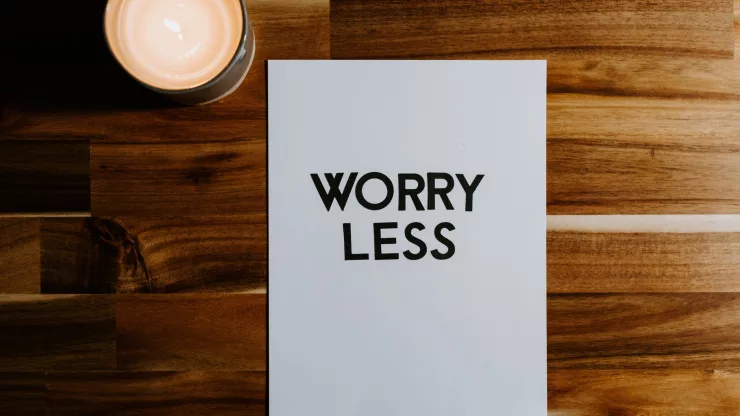Anxiety is a common mental health condition that affects millions of people worldwide. It can range from mild to severe and can interfere with daily activities and relationships.
However, there are effective strategies to manage anxiety and regain control. In this article, we will explore some of these strategies, including mindfulness and breathing techniques, cognitive-behavioral therapy, lifestyle changes, medication, and seeking professional help.
Jump to Section
Understanding Anxiety: Causes and Symptoms
Anxiety is a normal response to stress, but when it becomes excessive, it can lead to anxiety disorders. Some common causes of anxiety include genetics, brain chemistry, personality, and life experiences.
The symptoms of anxiety can vary from person to person and can include:
- Excessive worry and fear
- Restlessness
- Irritability
- Difficulty concentrating
- Muscle tension
- Sleep disturbances
It is essential to seek professional help if these symptoms persist and interfere with daily activities.
Mindfulness and Breathing Techniques
Mindfulness is the practice of being present and aware of your thoughts, feelings, and surroundings without judgment.
It can help reduce anxiety by promoting relaxation and reducing stress.
Breathing techniques, such as deep breathing and diaphragmatic breathing, can also help reduce anxiety by slowing down your breathing rate and promoting relaxation.
| Mindfulness and Breathing Techniques |
|---|
| – Practicing mindfulness daily can reduce anxiety and stress. |
| – Deep breathing and diaphragmatic breathing can help reduce anxiety by slowing down your breathing rate. |
Cognitive Behavioral Therapy: Rewiring Thoughts
Cognitive-behavioral therapy (CBT) is a type of talk therapy that focuses on identifying and changing negative thought patterns and behaviors. It can help individuals with anxiety learn new coping skills and reframe their thoughts to reduce anxiety.
| Cognitive Behavioral Therapy |
|---|
| – CBT can help individuals with anxiety learn new coping skills and reframe their thoughts. |
| – CBT is a type of talk therapy that focuses on identifying and changing negative thought patterns and behaviors. |
Lifestyle Changes for Better Mental Health
Lifestyle changes, such as exercise, a healthy diet, and getting enough sleep, can also help reduce anxiety.
Exercise can help reduce stress and produce endorphins, which can improve mood.
A healthy diet can provide essential nutrients that can help reduce anxiety, such as omega-3 fatty acids and magnesium.
Getting enough sleep is also essential for reducing anxiety and improving mental health.
| Lifestyle Changes |
|---|
| – Exercise can help reduce stress and improve mood. |
| – A healthy diet can provide essential nutrients that can reduce anxiety. |
| – Getting enough sleep is essential for reducing anxiety and improving mental health. |
Medication for Anxiety: Pros and Cons
Medication can be an effective treatment for anxiety, but it is not the only option. Some medications, such as benzodiazepines, can be habit-forming and have side effects.
Other medications, such as selective serotonin reuptake inhibitors (SSRIs), can take several weeks to be effective. It is essential to discuss the benefits and risks of medication with a healthcare provider.
| Medication for Anxiety |
|---|
| – Medication can be an effective treatment for anxiety, but it is not the only option. |
| – Some medications, such as benzodiazepines, can be habit-forming and have side effects. |
| – Other medications, such as SSRIs, can take several weeks to be effective. |
Seeking Professional Help: Therapy and Support Groups
Professional help, such as therapy and support groups, can also be effective in managing anxiety. Therapy can help individuals with anxiety learn new coping skills and manage their symptoms.
Support groups can provide a sense of community and understanding. It is essential to find a therapist or support group that fits your needs and preferences.
| Seeking Professional Help |
|---|
| – Therapy can help individuals with anxiety learn new coping skills and manage their symptoms. |
| – Support groups can provide a sense of community and understanding. |
| – It is essential to find a therapist or support group that fits your needs and preferences. |
Managing anxiety can be challenging, but there are effective strategies to regain control. Mindfulness and breathing techniques, cognitive-behavioral therapy, lifestyle changes, medication, and seeking professional help are all options to consider.
Remember to prioritize self-care and seek help if needed. With the right support and strategies, you can manage anxiety and improve your mental health.
FAQ
What is anxiety?
Anxiety is a normal response to stress, but when it becomes excessive, it can lead to anxiety disorders. It can include excessive worry and fear, restlessness, irritability, difficulty concentrating, muscle tension, and sleep disturbances.
What causes anxiety?
Some common causes of anxiety include genetics, brain chemistry, personality, and life experiences.
How can I manage anxiety?
Effective strategies to manage anxiety include mindfulness and breathing techniques, cognitive-behavioral therapy, lifestyle changes, medication, and seeking professional help.
What is cognitive-behavioral therapy?
Cognitive-behavioral therapy (CBT) is a type of talk therapy that focuses on identifying and changing negative thought patterns and behaviors.
How can lifestyle changes help manage anxiety?
Lifestyle changes, such as exercise, a healthy diet, and getting enough sleep, can help reduce anxiety by reducing stress, improving mood, and providing essential nutrients.
Is medication an effective treatment for anxiety?
Medication can be an effective treatment for anxiety, but it is not the only option. It is essential to discuss the benefits and risks of medication with a healthcare provider.

With a deep passion for personal development, Ben has dedicated his career to inspiring and guiding others on their journey towards self-improvement.
His love for learning and sharing knowledge about personal growth strategies, mindfulness, and goal-setting principles has led him to create My Virtual Life Coach.
Contact Ben at [email protected] for assistance.




